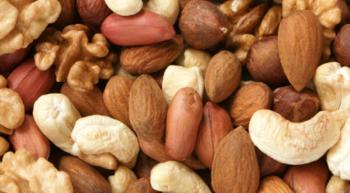
Patients with stage III colon cancer who ate at least 2 servings of nuts per week had superior disease-free survival (DFS) and overall survival (OS), according to results from the CALGB 8903 study published in the Journal of Clinical Oncology.

Patients with stage III colon cancer who ate at least 2 servings of nuts per week had superior disease-free survival (DFS) and overall survival (OS), according to results from the CALGB 8903 study published in the Journal of Clinical Oncology.

Nurses can help coach and push patients and their physicians along to do the steps that are needed to get good screening, says John Marshall, MD.
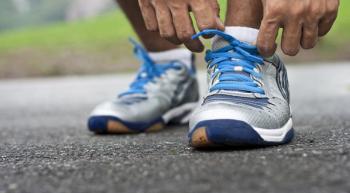
It is important for nurses to help patients implement physical interventions that are feasible and acceptable for those with colorectal cancer diagnoses.

A community, nurse-led group encourages cancer survivors to get more out of life while moving

Many patients complain of feeling so tired. What can we do to help those suffering from fatigue?

Ovarian cancer screening for women who do not have symptoms of the disease may do more harm than good, according to the USPSTF.
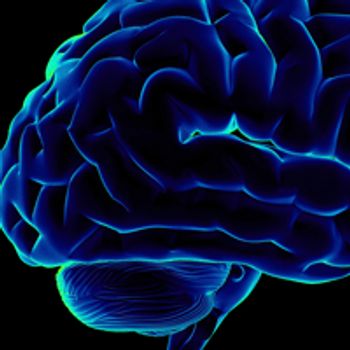
Observing the Warburg effect, researchers found that properties of the ketogenic diet could have a positive effect on outcomes for patients with glioma.

Moving Forward Together 3 is a study evaluating how to get breast cancer survivors exercising, by using other breast cancer survivors as coaches.
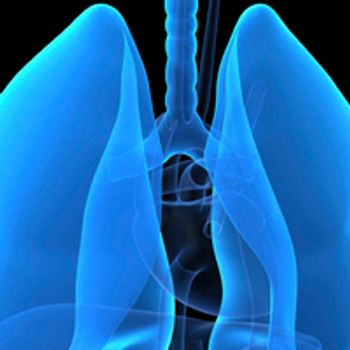
Patients with lung cancer who received low-dose CT scans had a 15% to 20% lower risk of death from their disease versus those who had standard chest X-rays, which has led to screening guidelines.
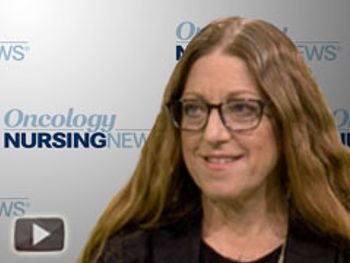
Sandra Allen-Bard, MSN, ANCC, AOCNP, of Weill Cornell Medical Center, discusses the impact myeloproliferative neoplasms can have on patients' quality of life.

The incidence of prostate cancer is 60% in black men in the US than in white men, and they are twice as likely to die from the disease.

The traditional Chinese exercise, tai chi, may assist breast cancer survivors experiencing insomnia.

More Stage I cancers were diagnosed after the passage of the Affordable Care Act (ACA), also known as Obamacare, within five screenable disease types: colorectal cancer, female breast cancer, cervical cancer, lung cancer, and prostate cancer).

Eating tree nuts may improve overall survival and reduce the risk of recurrence in patients with colon cancer.

A recent analysis showed that many women within the recommended age for routine screening are not up to date on Pap tests.

A recent study has found that, when it comes to physical activity recommendations, there is a disparity between what patients want and what their providers do.

For asymptomatic adults, the US Preventive Services Task Force (USPSTF) recommends against screening for thyroid cancer.

As presented at the 2017 ONS Annual Congress, nurses at UPMC-Shadyside evaluated the elimination of the neutropenic diet in patients with cancer.

A recent trial is evaluating a new drug to treat cachexia, testing its efficacy in dogs currently.

Amanda Bontempo, MS, RD, CSO, CDN, gives some tips for healthy eating. Join us on 4/18 at 1 PM for our tweetchat, with Bontempo as moderator, to discuss more nutrition.

There may be a shift away from the USPSTF's opposition to routine PSA screening for prostate cancer in some men.

A recent meta-analysis found that the most effective treatments for cancer-related fatigue are exercise and psychological interventions.

People with certain disabilities were found to be less likely to follow recommended guidelines for colorectal cancer screening.
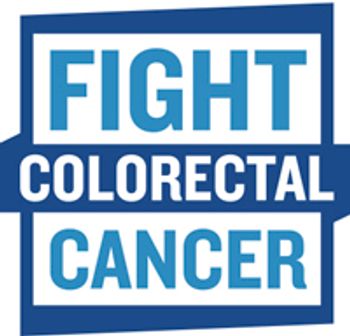
On March 21, at 9 PM EST, the #CureConnect tweetchat will be focusing on screening and prevention. Sharyn Worrall, Patient Education Manager for FightCRC will be comoderating on this topic, which is especially important for colorectal cancer.

A poor diet earlier in life could be linked to a greatest risk of breast cancer before menopause.
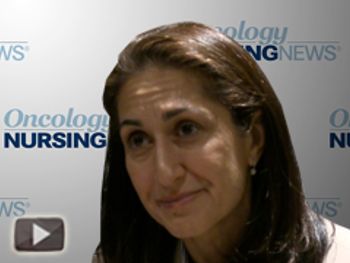
Partow Kebriaei, MD, from MD Anderson Cancer Center, discusses how nurses can monitor patients for cytokine release syndrome.

A recent study found that telenutrition services may be beneficial for patients with high-risk cancer.

A recent trial found that patients who receive telephone-based smoking cessation counseling at the time of lung cancer screening are more likely to quit smoking.

Group exercise programs are beneficial to survivors of cancer, and can offer motivation from peers to continue living a healthy lifestyle.

Elizabeth Repasky, PhD, discusses the effect that lifestyle factors can have on immune reponses in patients with cancer.